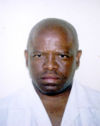User:Mookanah
| Employer: | University of Botswana | ||
| Occupation: | Instructional Designer/Lecturer | ||
| Nationality: | Motswana | ||
| Country: | Botswana | ||
| |||
This the link to the workshop homepage: 18-20 March 2009
http://www.wikieducator.org/Learning4Content/Workshops/Face-to-Face_schedule/L4C51
Hello,
My name is Molefe. I work at the University of Botswna as an Instructional Designer. My work entails training academic staff on design and developing online courses. The University of Botswana uses Blackboard as its main Learning Management System.
I have taught Science in Senior Secondary Schools and Educational Technology at Colleges of Education.
Have served as an in-service officer and curriculum developer in the Ministry of Education (Botswana).
External Resources
my home page
Blackboard
http://en.wikieducator.org/All_iDevices
SafeAssign FAQs
Surver monkey
Tutorial
'''''File:Growth of online course from January to December 2013.PNG'''''''''
RESEARCH WORK
A Systems Theory View of Technology Management in a University: A Case from a Developing Nation
Piloting SafeAssign at the University of Botswna
The Role of ICT on National Curriculum of Botswana
--Mookanah 12:05, 20 March 2009 (UTC)
ASSESSMENT
a)What is the purpose for assessment?
b)What assessment strategies are in place in the University?
c)Identify the different forms of assessment that could be used in your course. List them.
The responses from eLearning workshop participants are as follows:
Participant 1:
a) To check if the learning has taken place b) To asess if the objectives have been met c) Tests, exams, group works, assignements, projects and filedwork
Participant 2:
a) To check how much the students have understood and retained concepts of the course. b) Continuos assessment, final examination, presentations, projects. c) MCQ, short naswer questions, presentations.
Participant 3:
a) To check student's level of understanding of the course content covered. b) Tests,presentations, assignments, projects, take home tests, exams. c) Presentations, role play, tests, assignments.
Participant 4:
a) The purpose for assessment is to measure how much students have learnt, not only that but also to promote independent learning and a culture of reading and understanding further than the classroom environment. b) Tests, written assignments, term papers, research projects, portfolios, teaching practice, clinicals, labs, workshops, video/text analysis (discourse analysis). These vary according to programs. c) Video analysis, written assignments, research papers, Test, relevant workshops
Participant 5:
a) To check on the level of comprehension on progress (continuous assessment) and check the overall understanding of the content covered (summative) b) They are end of course test, laboratory sessions and end of semester exams c) Quizzes
Participant 6:
a) To measure the degree of learning, e.g. was the teaching and the learning processes effective or not. b) Final examinations (written or oral) and continuous assessments. c) Different forms of assessments: class tests (practical or written), assignements, presentations, debate,
Participant 7:
a) to check how the students have grasped the content and whether they are at a stage where they can be part of a risk assessment team b) tests, quiz, assignment, exam c) quizes, tests, group assignments
Participant 8:
a) To find out if the students would have attained the set objectives b) Demonstrations, presentations, written/recorded exams, quizes, assignments, group work, projects ... c) Demonstrations, presentations, projects, Tests, exams.
